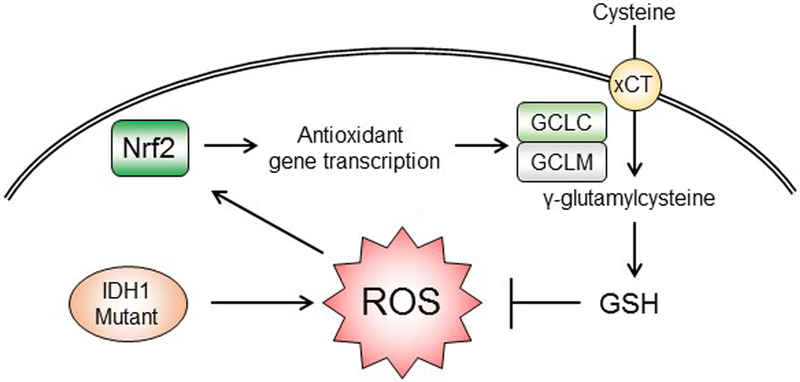Figure 6.
Targeting Nrf2/GSH axis for IDH1-mutated cancers
Cancer-associated IDH1 mutants cause metabolic deficiency and accumulation of oxidative stress. Nrf2 plays a key protective role in IDH1-mutated cells, by transcribing GSH synthesis enzymes. The enhanced de novo GSH synthesis neutralizes excessive ROS, and therefore avoids oxidative damages to macromolecules. Targeting Nrf2/GSH could be a novel therapeutic strategy in this type of human malignancies.

